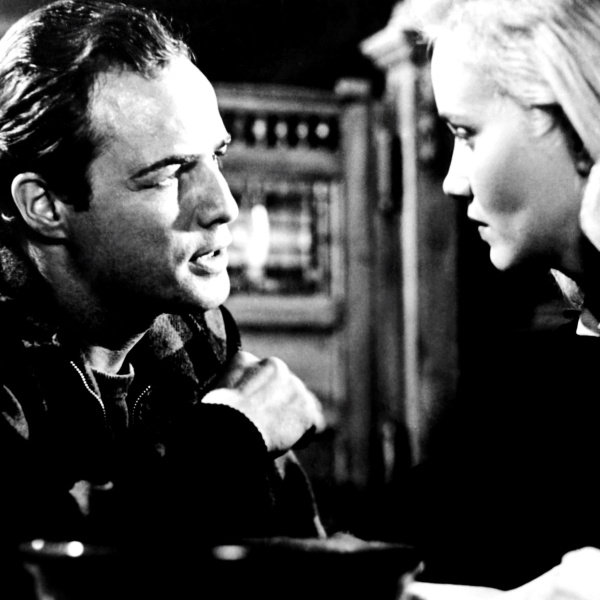Who is “Kinds of Kindness,” the brain-bending new film from director Yorgos Lanthimos, for? While it may not be for those swept up by the queenly regalia of “The Favourite” or the dystopic steampunk Victorianism of “Poor Things,” remember that those films made audiences uncomfortable, too: With a wickedly perverse sense of humor that often erupts in violence. (First reactions at Cannes called it a “dark” and “twisted” return to Lanthimos’ early form.)
That’s the modus operandi of “Kinds of Kindness,” which stars Jesse Plemons, Emma Stone, and Willem Dafoe, and tells three tales of subsumed identity, cultlike bewitchment, and fleshly appetites, kinky sex, and all the gamut of self-aware Lanthimos weirdness. Here, he’s not working with screenwriter Tony McNamara. Instead, the Oscar-nominated Greek director is back behind the camera with Efthimis Filippou, his dear friend and beloved co-writer of films including the breakout “Dogtooth” (about three adult offspring held in emotional captivity by their manipulative father), “The Lobster” (about a society where being single means death), and “The Killing of a Sacred Deer” (about a teen menace who uses voodoo to pull a family apart). Thus, we are ever in the world of decorum-defiling, potentially audience-alienating mayhem yet again.
The same revolving troupe of actors each play different roles across each story, though as Lanthimos told IndieWire at the Cannes Film Festival, he and Filippou considered making the stories run parallel rather than discretely, like the linear, “Pulp Fiction”-like trilogy they are in the finished film.
“You would follow the stories in parallel, but then this idea stuck in my head that I wanted the same actors to play different roles in his story. [Parallel stories] would’ve been very confusing, so we decided to separate the three stories so that it was clear that the characters changed, but the actors were the same,” the director said.

In part one, “The Death of R.M.F.,” Plemons plays an office worker being mind-controlled by his boss; in part two, “R.M.F. Is Flying,” Stone plays a woman who returns after being lost at sea and whose husband (Plemons again) is convinced the woman returned is not his wife; in “R.M.F. Eats a Sandwich,” Stone plays a woman brainwashed by a cult, led by Willem Dafoe and Hong Chau, while trying to evade the emotionally toxic ex (Joe Alwyn) with whom she shares a daughter.
Alwyn’s character in that final section (narratively the strongest) ends up date-raping his ex. Not the role you’d expect from the dandyish British actor, but Filippou said that “Kinds of Kindness” isn’t deliberately trying to thwart audience expectations whether with casting or incidents in the film. “Life itself makes people uncomfortable,” said Filippou. “I mean, it’s not like we try to write weird films or to make [Joe Alwyn] to be a rapist … there are rapists out there, and there are people that are raped.”
There’s more body horror and dark sexuality in “Kinds of Kindness” than even the sex-positive “Poor Things” and the devious royal ménage à trois in “The Favourite.” I asked Lanthimos, who shot “Kinds of Kindness” entirely while “Poor Things” was in post-production, if he’s trying to shed the persona he’s established with the writer on those films, Tony McNamara, here.
“There’s not a very structured plan of what it is I want to do and what it is I want to do next,” Lanthimos said. “It’s all these things that interest me, and whatever script I feel is ready to go, you just go and do it. It was kind of calming to make something which is contemporary and didn’t require so much design of sets and things like that, which I was doing for the first time with ‘Poor Things.’”

© 2024 Searchlight Pictures
Nor is Lanthimos trying to rile audiences with movies like “Kinds of Kindness,” which features not only date rape executed by Alwyn, but a Plemons turned flesh-eater and a Stone, as his wife, obsessed with making group porn videos their friends.
“I think that it’s the way we think and the way we write that maybe sometimes make people uncomfortable, but it’s not the aim to create such a feeling,” Filippou said.
“If anything, we try to do the opposite. If we come up with things that feel too provocative out of context, an idea that goes a certain way that’s not consistent with the rest of it, we might do away with it,” Lanthimos said. “Or maybe we discover something different. First of all, we don’t write thinking about the effect it has on our audience. We just see how it feels to us, and what’s instinctive on our side, and what feels right and what we both feel comfortable. We don’t know how people are going to react. There are so many different people and experiences and cultures, and we allow that. It allows people to have a different view on the film, and that’s the fun part.”
Do they see a common thread across the stories in “Kinds of Kindness,” which all deal with literally body-modifying arcs toward conformity? Originally, there were 10 stories that Filippou and Lanthimos pared down to three.
“We don’t work in an analytical way, so we don’t know what the theme is,” Lanthimos said. “Even the stories that we selected, they felt [as if] in the same world, and we hadn’t even developed them fully when we decided, ‘These seem like the right stories to go together.’ And then you start developing them and then all these things might manifest themselves. It is just a creative process that is not analytical. It’s not like, OK, the theme of faith or the theme of control or whatever. It never starts like that. And I think even by the time we finish, we don’t even think about that.”
Searchlight Pictures releases “Kinds of Kindness in theaters on June 21 following its 2024 Cannes Film Festival premiere.






